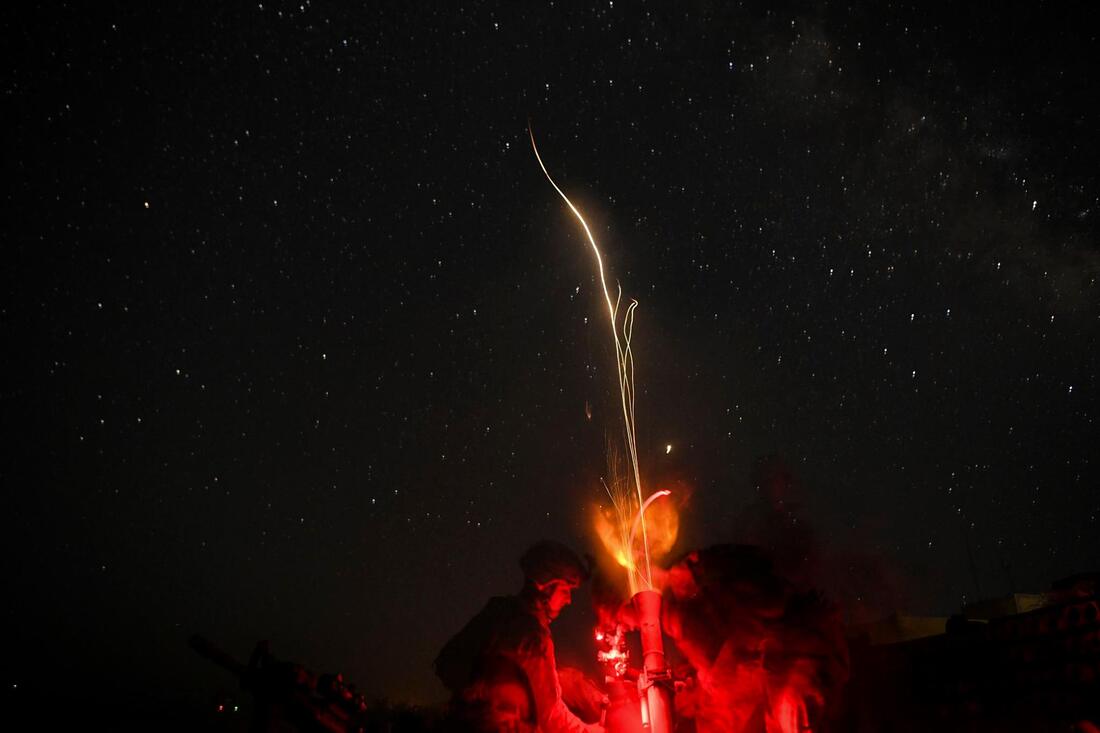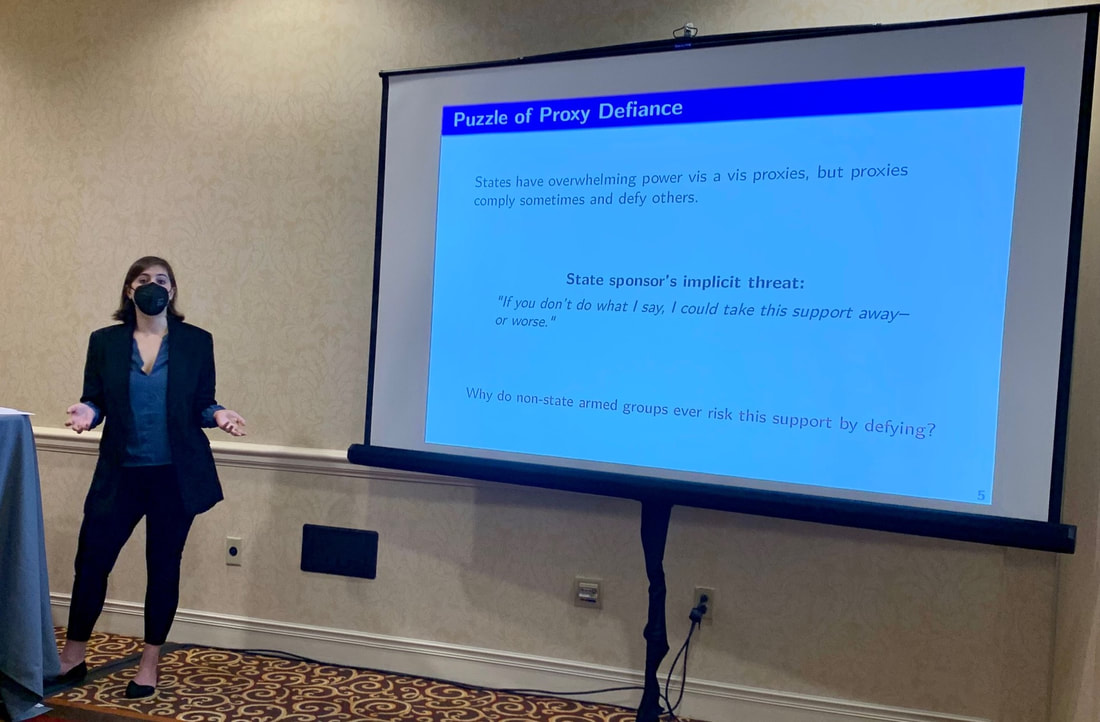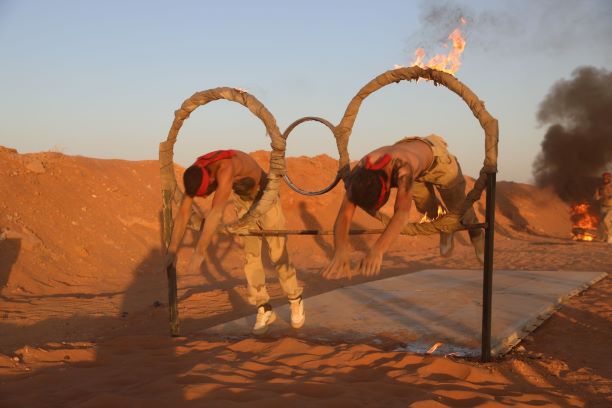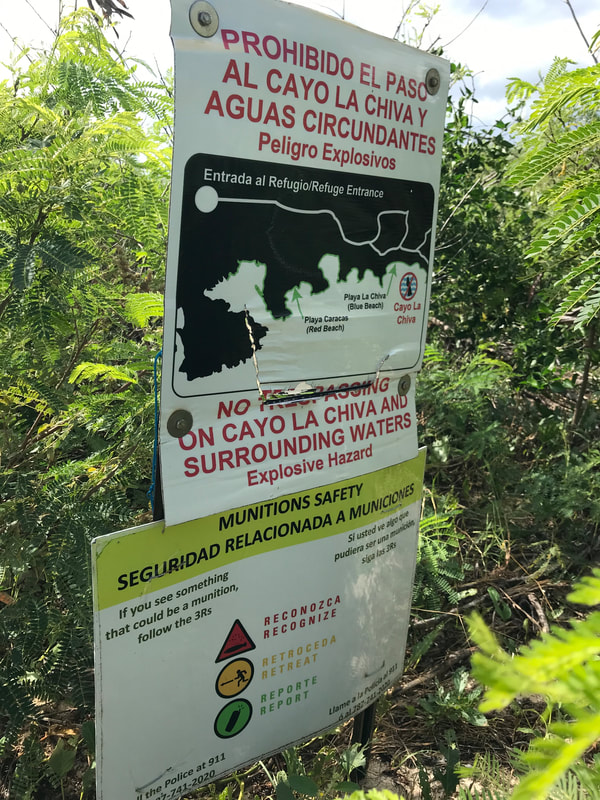My research examines proxy warfare,
armed and military organizations, and control over the use of force--
with special attention to the human cost of war.
armed and military organizations, and control over the use of force--
with special attention to the human cost of war.
|
Book Project:
Why Proxies Defy: America's Quest for Control in Proxy Wars Since World War II Why do non-state armed groups that receive military aid from external states (proxies) ever risk losing support or angering their state sponsors by defying them? This book project demonstrates that, although they are often accused of being puppets, proxies are often anything but. I show that when proxies disagree with demands their sponsors make of them, they comply with those costly demands sometimes but not others. Uncovering when a proxy is acting on behalf of a state sponsor or is stepping out of line has consequences for numerous dynamics across international security, from the potential for inter-state escalation, avenues for protecting civilians, and accountability in post-war settings.
My book project tests the limits of state sponsors’ promises and threats through in-depth case studies of the US’s relationships with armed groups across the Middle East, Africa, Latin America, and Asia from 1940 to 2020, systematically selected from an original dataset of all American proxy relationships after 1940. In one of its key contributions, the book dives deeply into four cases of US-sponsored armed groups in the Syrian civil war, leveraging original datasets of the groups’ compliance records; interviews with American officials and group representatives; and a “modern archival method” of scouring thousands of pages of text compiled from all official American and group statements and local and international media sources. Controlled comparisons of five additional, in-depth case studies of US-proxy relationships during the Cold War draw on archival documents and memoirs. |
|
Selected Working Papers and Data "Proxies and the Public: Public Support for Military Aid to States and Militias"
"Mission (Im)Possible: Record of American Sponsorship of Non-State Armed Groups During the Cold War"
"Foundations of Proxy Control: What It Means and How to Identify It" "Loyalty Can’t Be Bought: Explaining Military Defection during Civilian Uprisings” “Anatomy of a Safe Area: The Military Requirements of Humanitarian Protection During Civil Wars” |
Selected Policy PublicationsKeep the Spark from the Tinderbox: Infuse Escalation Risk into U.S. Military Education, Training, and Doctrine, Center for a New American Security, March 3, 2022
Seven Bad Options to Counter State Sponsorship of Proxies, in Lawfare Blog, September 13, 2020 Why Proxy Wars Endure and End, in Proxy Wars Initiative, a Carnegie Corporation-funded project, May 8, 2020. Proxy War: The 'Least Bad Option' or the 'Second-to-Last-Resort'? as part of “Book Review Roundtable: Understanding Proxy Warfare,” Texas National Security Review, March 17, 2020. Trump wants a safe zone in Syria. Is that even possible?, in MonkeyCage blog, the Washington Post, January 24, 2019. War Isn’t (Quite) the Right Metaphor for COVID-19, with Sanne Verschuren in Political Violence at a Glance, May 20, 2020. Civil-military relations under President Trump, for précis, a student newsletter for MIT’s Center for International Studies, December 19, 2017. |
The content on saraplana.com represents the views of Sara Plana alone and not of any current or former employers.



